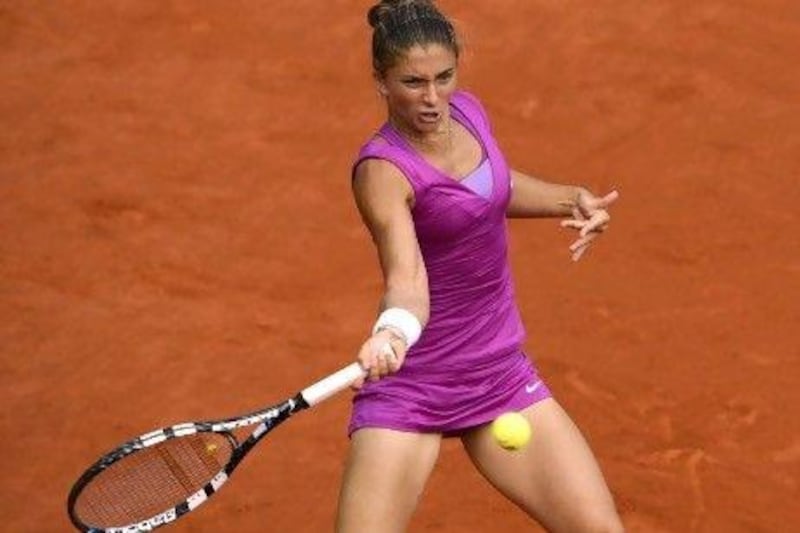When Maria Sharapova's opponent in the French Open final, Sara Errani, was 12 years old, she struck out on her own, leaving behind her family in Italy and crossing an ocean to join Nick Bollettieri's famed tennis academy in Florida.
Far from her parents, and not yet able to speak English, Errani stuck it out for about 10 months, crying nearly every day. She often called home.
"I knew she was determined and focused," her mother, Fulvia, said after watching Errani win her first grand slam semi-final, "so I knew she would figure things out."
Now 25, Errani most certainly has. She decided she needed to go back to Europe, eventually finding a new coach and a place to train in Spain.
She learned how to overcome the limitations of a 1.62-metre frame in a sport filled with taller players and harder hitters - such as the 1.8m Sharapova, a three-time major champion who will be standing across the net today at Roland Garros with the title at stake.
Crucially, Errani learned that it made no sense to worry about whether she would be good enough to beat the best. She focused on always improving.
"It's not a question of believing or not believing," Errani said. "I don't think about that. I just think about playing. I just think about going on court and giving my all. And whatever happens, happens.
"I've never thought, 'I can't beat someone in the top 10.' I play and give my best, and if I don't win, I don't win. But I don't think about whether I can win the title. I just think about the next match.
"If I win, then I think about the next one. And if I win again, then the next one. But I don't think too far ahead. That doesn't help a player. It's better to take it a step at a time."
Sharapova is a global superstar and her story is known well: born in Siberia, moved with her father to Florida as a kid, worked with Bollettieri, too.
"I don't remember crossing paths," said Sharapova, who is 10 days older than Errani. "We have never played against each other, but I certainly know she's a dangerous player because of the way she's played here and because of the way she's performed on clay this year."
Errani's tale is less familiar; she is not famous even in Italy.
Until a quarter-final run at this year's Australian Open, she never had been past the third round at a grand slam tournament.
Asked to explain her surge this season, Errani pointed to her equipment: she switched to a racket with a longer handle (she has repeatedly quipped that growing longer arms was not an option), which adds some oomph to her strokes.
The change made such a difference that Errani was willing to pay to get out of her contract with the company that made her old racket.
"It was love at first sight," she said about the new model. "From my first practices with it, I really felt completely different. I could control the ball better. I could hit it faster. It boosted my confidence."
Errani's coach, Pablo Lozano, was asked whether he expected her to go this far when they first began working together, eight years ago.
"No, no, no. Not even a year ago," he said.
"To reach the final at a tournament like this, you need to be one of the best 10 or 15, or maybe 20, players in the world." Errani was seeded No 21 here.
Sharapova is assured of returning to No 1 in the rankings by virtue of reaching her first French Open final, and Errani is guaranteed to move into the top 10 for the first time. And while Sharapova can become the 10th woman to complete a career Grand Slam, Errani has a chance to forever be known as a grand slam champion.
"I don't even know how to describe how I feel," she said. "I haven't had a chance to stop and really think about what I've done. But maybe it's better not to. Maybe it's better to keep going this way, not thinking about it, and just keep playing.
"I'll take the time to think about it at the end of the tournament or at the end of my career."
Follow us
[ @SprtNationalUAE ]





